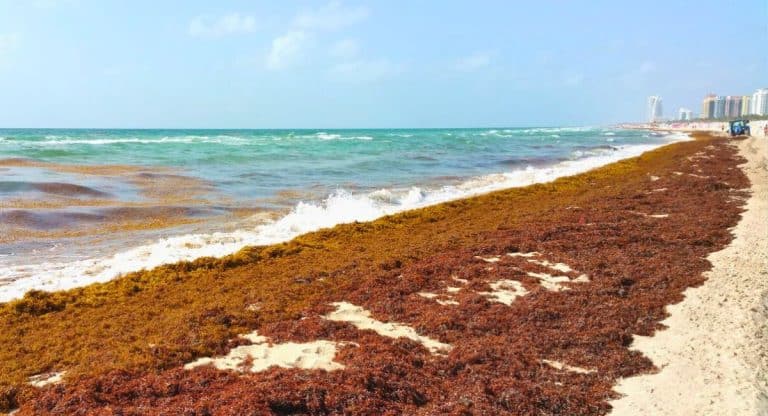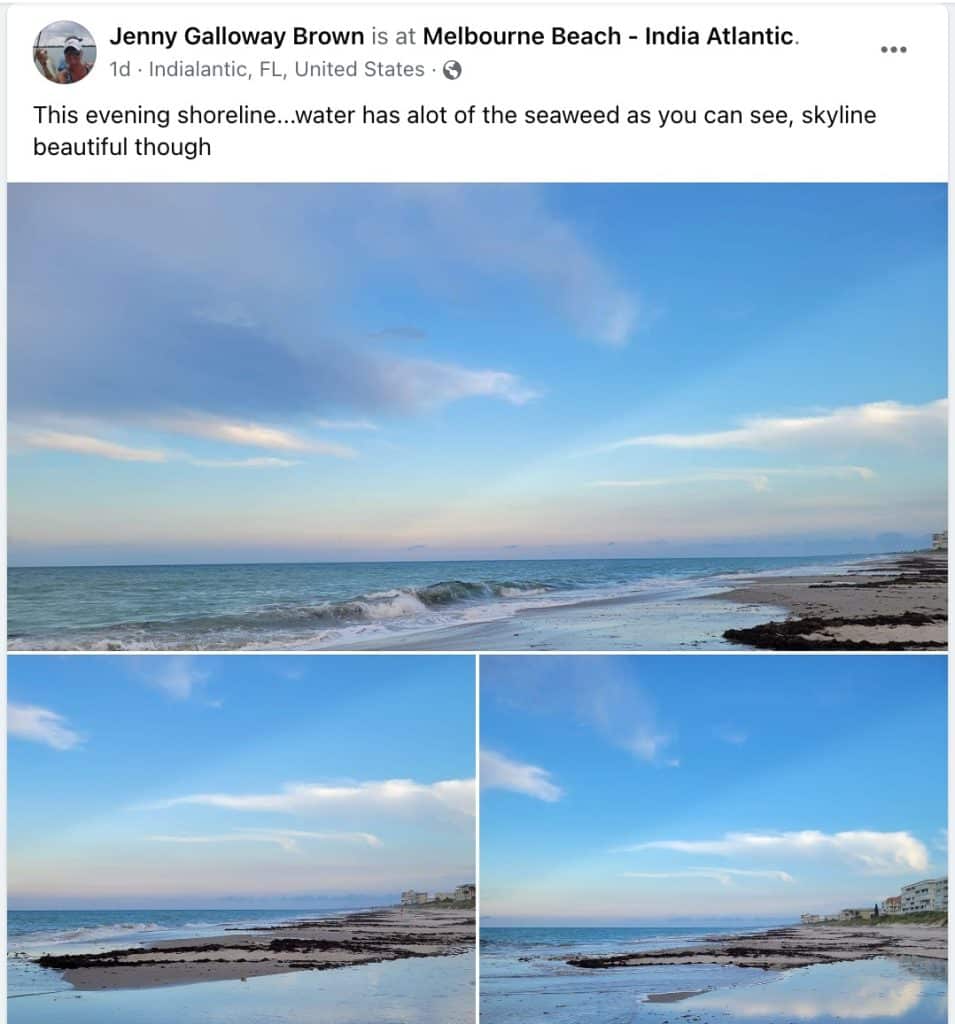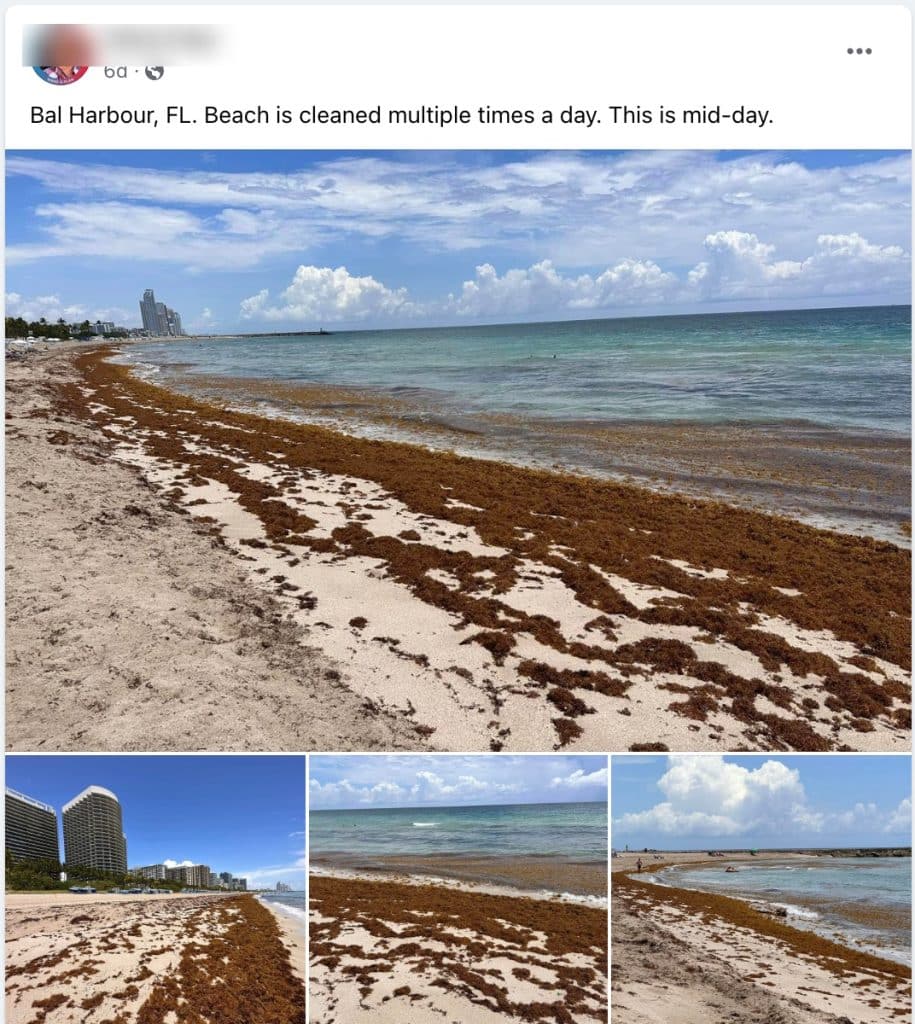Florida’s coast will be covered by seaweed this summer. The Atlantic seaweed known as sargassum will be coming ashore and may be particularly plentiful this year.
According to the latest update from University of South Florida scientists, Florida will start seeing the peak of the sargassum seaweed invasion in late May this year.
Join our FB group where Florida’s locals post the latest photos and videos on Sargassum Seaweed in FL
Table of contents
- Latest Updates on the Seaweed Situation in Florida:
- April 25 – May 4: Latest photo reports from Sargassum Seaweed Florida Reporting FB Group
- April 25, 2024: Latest photo updates
- April 25, 2024: Florida seaweed forecast: The invasion to start in late May this year
- January 15, 2024: Another record blob of sargassum was measured in the Central Atlantic Ocean
- What’s causing the seaweed problem?
- What could be done? These are possible alternative uses of sargassum heading to Florida, according to a new startup
- REPORTS & UPDATES FROM SEAWEED SEASON 2023
Latest Updates on the Seaweed Situation in Florida:
April 25 – May 4: Latest photo reports from Sargassum Seaweed Florida Reporting FB Group
Seaweed season 2024 is in full swing in Florida and it’s about to start peaking! Most affected areas are expected to be Key West and the Florida Keys.




April 25, 2024: Latest photo updates
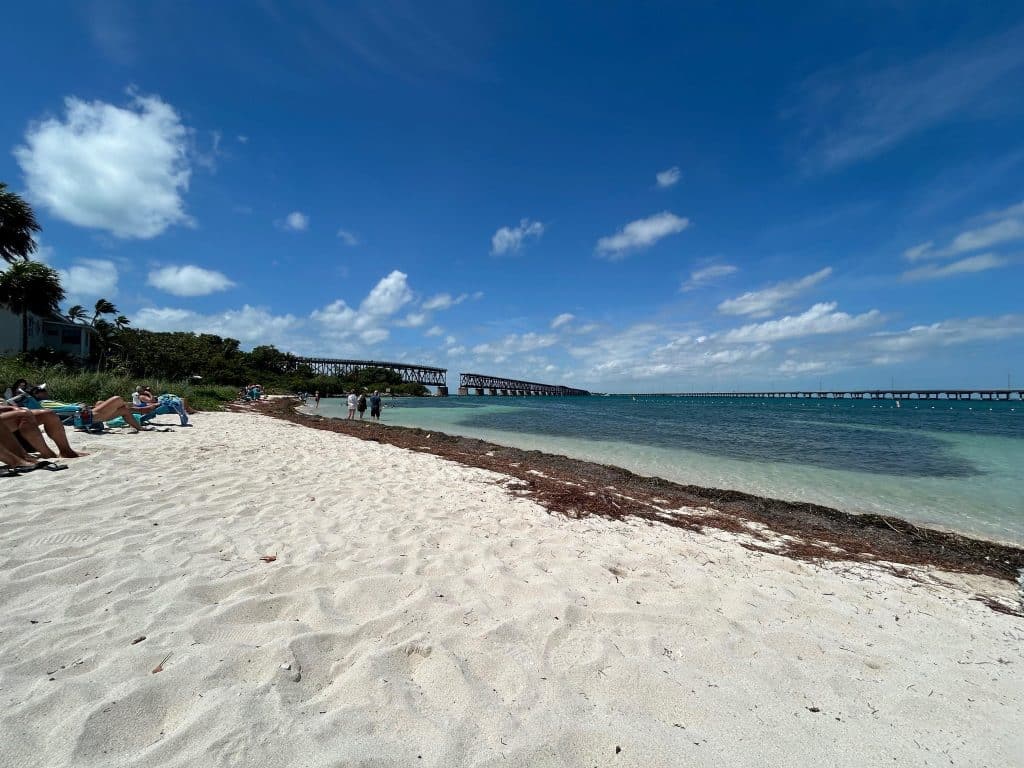
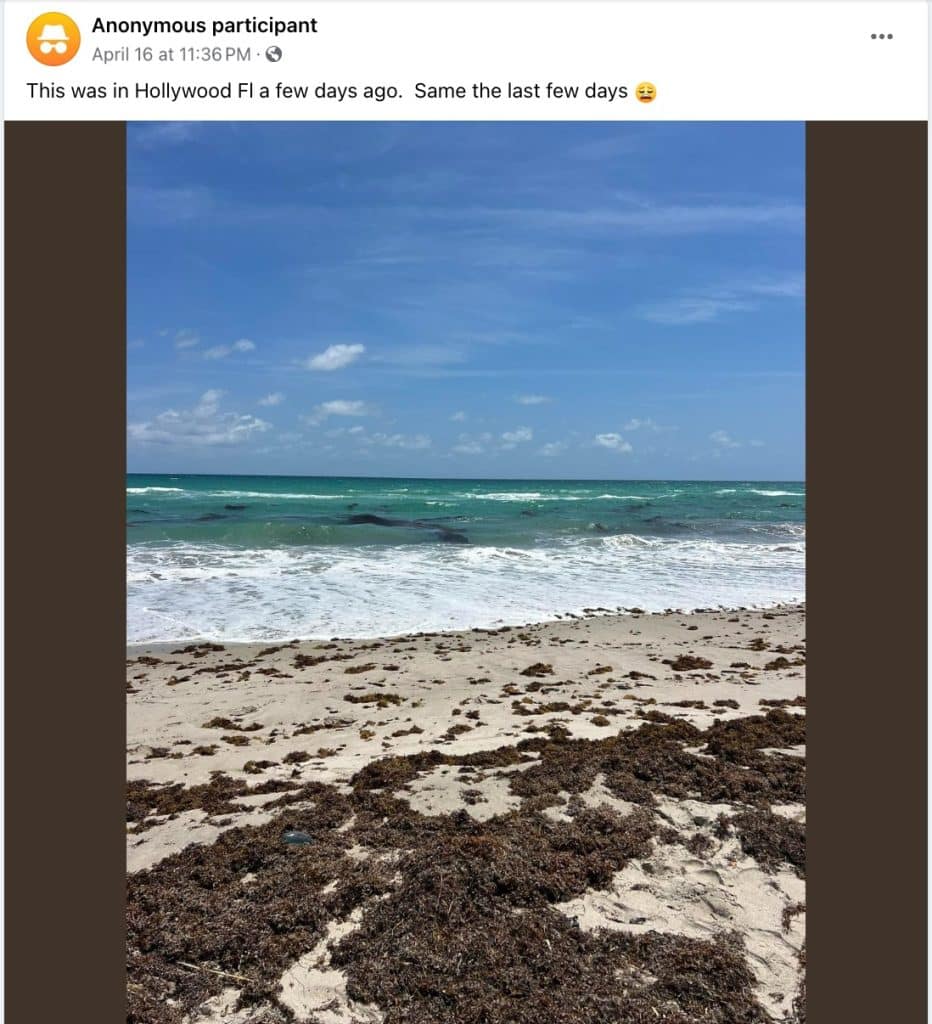
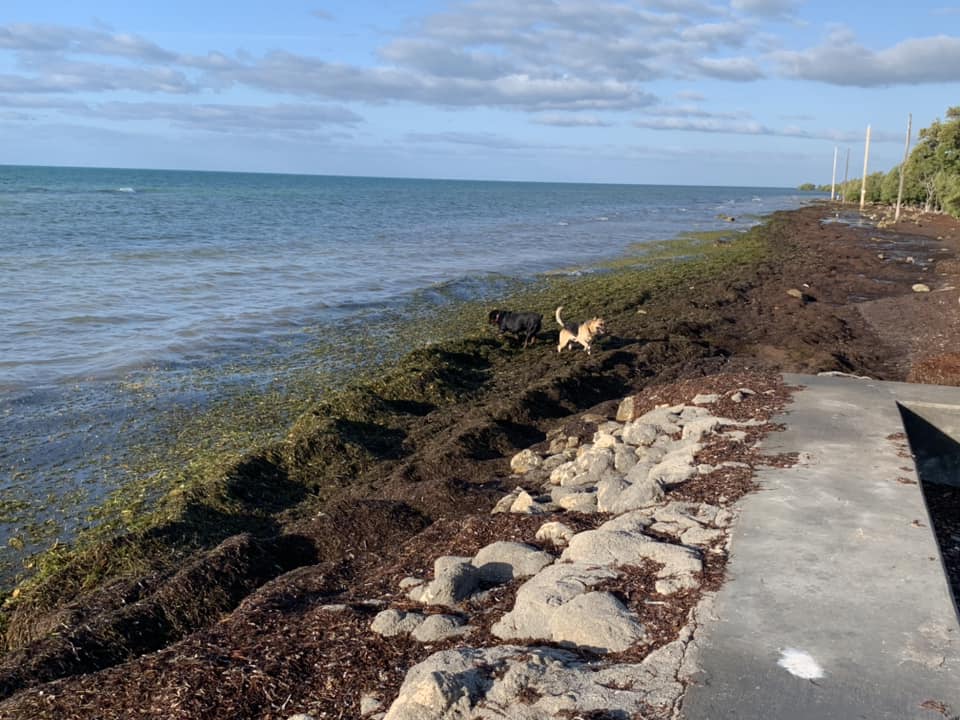
April 25, 2024: Florida seaweed forecast: The invasion to start in late May this year
According to the Palm Beach Post, scientists from the University of Florida predict a potentially massive sargassum seaweed invasion in May.
Official seaweed season in the Caribbean has already started but it has been very mild up until the middle of April. Caribbean places such as Cancun, Tulum, and Punta Cana are usually strongly affected and started seeing higher seaweed arrivals only in the past 2 weeks. This delay was most likely caused by lower sea temperatures in the Caribbean this winter.
“Unlike most previous years, total sargassum amount decreased from about 9 million metric tons in February to about 6.5 million metric tons in March,” a report from USF’s Optical Oceanography lab stated earlier this month. “The total amount in March was still above the 75% of all previous March months, indicating 2024 could still be a major sargassum year.” according to scientists.
January 15, 2024: Another record blob of sargassum was measured in the Central Atlantic Ocean
University of South Florida scientists have reported a significant increase in sargassum, a type of seaweed, in the Central Atlantic, near the Caribbean Sea. As of December 2023, the mass of sargassum reached nearly 5 million metric tons, a substantial increase from the 1 million metric tons recorded at the same time in the previous year.
This amount sets a new historical record for the region. Despite a 15% decrease in May 2023, which deviated from the 2022 record high of 22 million metric tons, researchers anticipate 2024 to be another major year for sargassum growth.
Currently, the majority of this seaweed mass is located about 500 miles east of the Caribbean Sea, with significant blooms also observed near Venezuela’s Orinoco River, affecting areas like Trinidad and Tobago and the southern Caribbean Sea.
What’s causing the seaweed problem?
A 2020 study, involving research from the National Oceanic and Atmospheric Administration (NOAA), has linked the surge in sargassum in the tropical Atlantic Ocean to a shift in the North Atlantic Oscillation (NAO) around 2009-2010.
This change led to stronger west and south winds, which dispersed sargassum from the Sargasso Sea into the tropical Atlantic, where it received more sunlight and nutrients from ocean upwelling.
The longevity of this increased sargassum presence is uncertain, with NOAA’s Rick Lumpkin noting the possibility of a similar event occurring in the past, followed by a decline of the Sargassum belt after several decades.
What could be done? These are possible alternative uses of sargassum heading to Florida, according to a new startup
The surge of sargassum seaweed in recent times has triggered businesses to explore novel methods of eliminating it, and its potential uses are already manifold.
Scientists and entrepreneurs aspire to transform it into syrup, bricks, and conceivably even jet fuel. Carbonwave, an organization based in Boston and Puerto Rico, is utilizing it as a constituent in fertilizer, cosmetics, and even synthetic leather.
REPORTS & UPDATES FROM SEAWEED SEASON 2023
The last sargassum seaweed season was predicted to be devastating and the worst ever. There was 5,000 miles long seaweed belt measured by scientists at Florida University which was heading towards the Caribbean and Florida. Fortunately, in July 2023, the seaweed belt shrunk by 75% and did not pollute the beaches as expected. Therefore, this year is hard to predict!
July 18: Latest seaweed news and photos from Florida


June 1: Jupiter Dog Beach

June 1: Panama City Beach
May 22: Latest photos and reports from travelers and locals in Florida
Here are a few latest photos and updates from different areas around Florida. Join our group “Sargassum Seaweed Updates Florida” and ask about any particular area.
May 22: Bahia Honda State Park Seaweed Report
May 21: Melbourne Beach Seaweed Report
May 16: Bal Harbour Beach Seaweed Report
Key West – Southernmost Point of the Continental USA (April 30)

